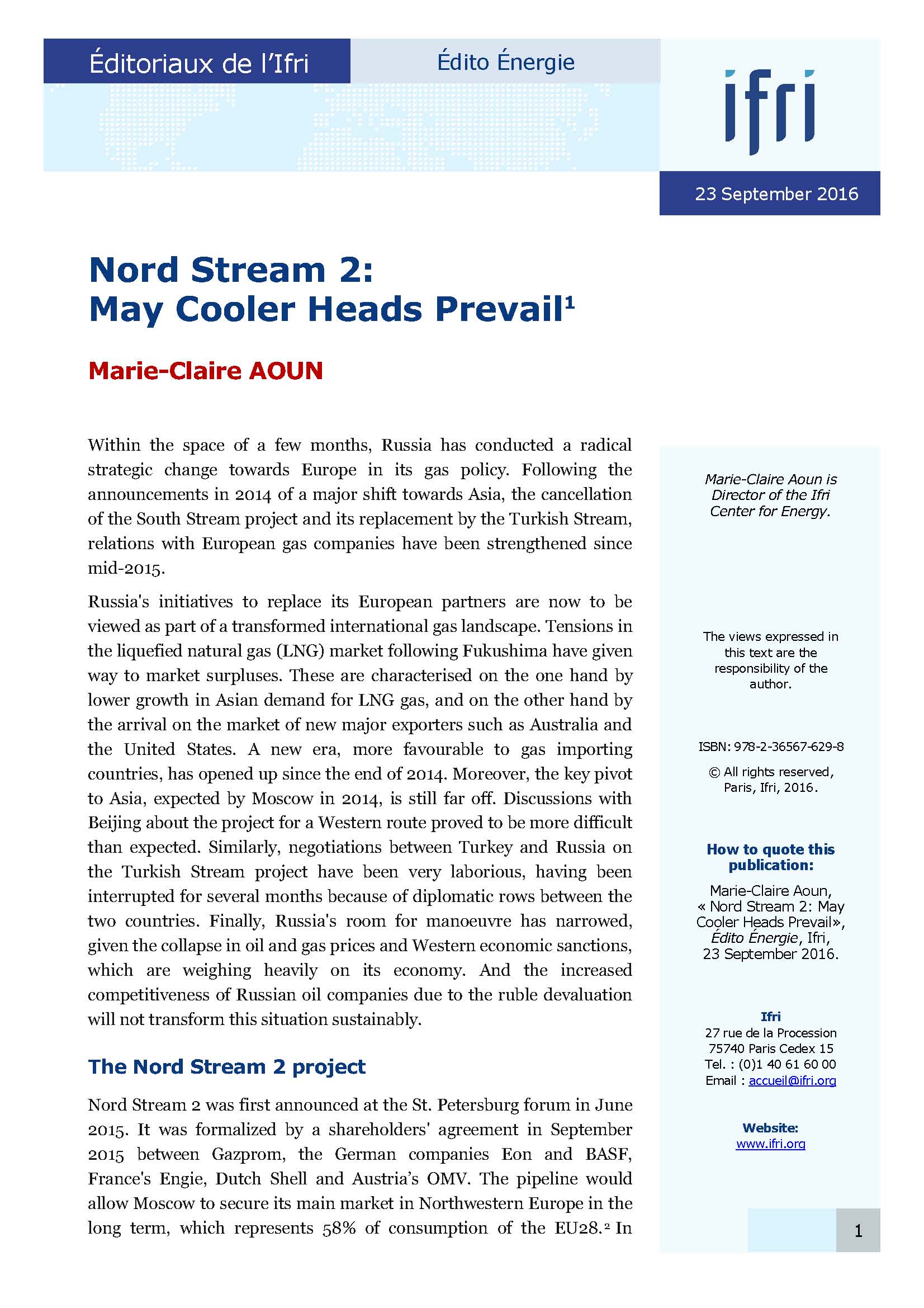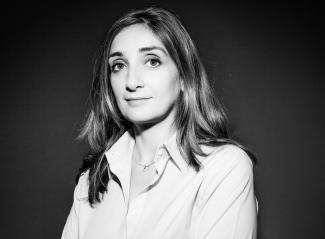Nord Stream 2: May Cooler Heads Prevail

Since the announcement of the Nord Stream 2 project in June 2015, the debate around the benefits of this project for Europe is raging, putting forward political, economic and commercial arguments.

Within the space of a few months, Russia has conducted a radical strategic change towards Europe in its gas policy. Following the announcements in 2014 of a major shift towards Asia, the cancellation of the South Stream project and its replacement by the Turkish Stream, relations with European gas companies have been strengthened since mid-2015.
Russia's initiatives to replace its European partners are now to be viewed as part of a transformed international gas landscape. Tensions in the liquefied natural gas (LNG) market following Fukushima have given way to market surpluses. These are characterised on the one hand by lower growth in Asian demand for LNG gas, and on the other hand by the arrival on the market of new major exporters such as Australia and the United States. A new era, more favourable to gas importing countries, has opened up since the end of 2014. Moreover, the key pivot to Asia, expected by Moscow in 2014, is still far off. Discussions with Beijing about the project for a Western route proved to be more difficult than expected. Similarly, negotiations between Turkey and Russia on the Turkish Stream project have been very laborious, having been interrupted for several months because of diplomatic rows between the two countries. Finally, Russia's room for manoeuvre has narrowed, given the collapse in oil and gas prices and Western economic sanctions, which are weighing heavily on its economy. And the increased competitiveness of Russian oil companies due to the ruble devaluation will not transform this situation sustainably.
To read the full text, download the document below.
Download the full analysis
This page contains only a summary of our work. If you would like to have access to all the information from our research on the subject, you can download the full version in PDF format.
Nord Stream 2: May Cooler Heads Prevail
Related centers and programs
Discover our other research centers and programsFind out more
Discover all our analysesAI, Data Centers and Energy Demand: Reassessing and Exploring the Trends
The information and communication technologies sector today accounts for 9% of global electricity consumption, data centers for 1-1.3%, and artificial intelligence (AI) for less than 0.2%. The growing energy demands of cloud services first, and now AI workloads (10% of today’s data centers electricity demand), have exacerbated this trend. In the future, hyperscale data centers will gain shares amongst all kinds of data centers and AI will probably account for around 20% of data centers electricity demand by 2030.
Unlocking India’s Energy Transition: Addressing Grid Flexibility Challenges and Solutions
India is rapidly scaling up its renewable energy (RE) capacity, adding 15–20 GW annually, but the ambitious goal of 500 GW of non-fossil capacity by 2030 is at risk unless the pace accelerates.
Europe’s Black Mass Evasion: From Black Box to Strategic Recycling
EV batteries recycling is a building block for boosting the European Union (EU)’s strategic autonomy in the field of critical raw minerals (CRM) value chains. Yet, recent evolutions in the European EV value chain, marked by cancellations or postponements of projects, are raising the alarm on the prospects of the battery recycling industry in Europe.

The New Geopolitics of Energy
Following the dramatic floods in Valencia, and as COP29 opens in Baku, climate change is forcing us to closely reexamine the pace—and the stumbling blocks—of the energy transition.














